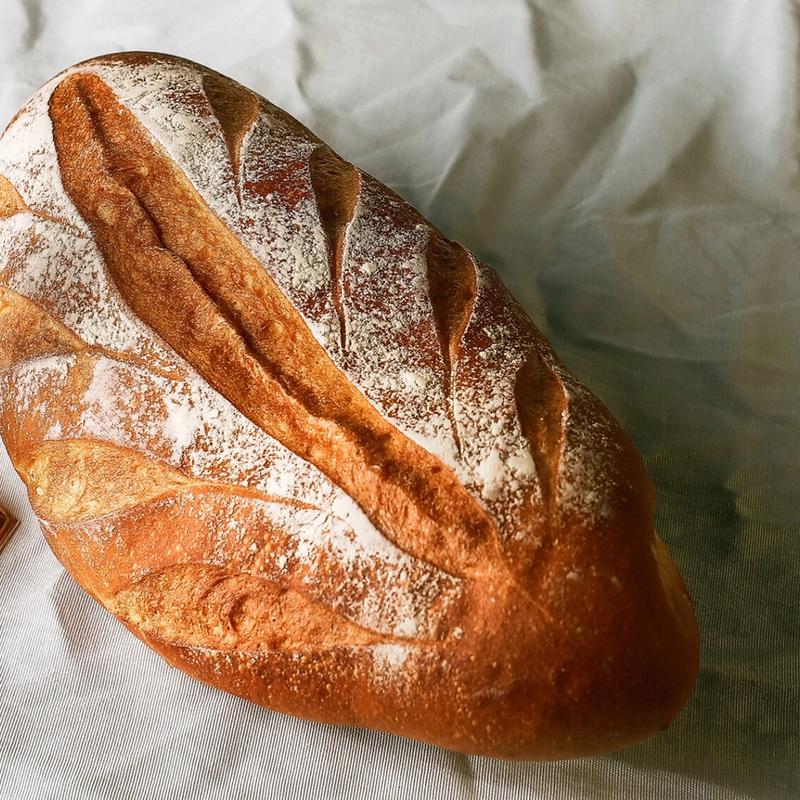This article is part of our weekly series, “Our Life’s Comfort: One Year of Being Shaped by the Scriptures.” Read more from the series here.
(75) Q. How does the holy supper remind and assure you that you share in Christ’s one sacrifice on the cross and in all his benefits?
A. In this way: Christ has commanded me and all believers to eat this broken bread and to drink this cup in remembrance of him. With this command come these promises: First, as surely as I see with my eyes the bread of the Lord broken for me and the cup shared with me, so surely his body was offered and broken for me and his blood poured out for me on the cross. Second, as surely as I receive from the hand of him who serves, and taste with my mouth the bread and cup of the Lord, given me as sure signs of Christ’s body and blood, so surely he nourishes and refreshes my soul for eternal life with his crucified body and poured-out blood.
(76) Q. What does it mean to eat the crucified body of Christ and to drink his poured-out blood?
A. It means to accept with a believing heart the entire suffering and death of Christ and in this way to receive forgiveness of sins and eternal life. But it means more. Through the Holy Spirit, who lives both in Christ and in us, we are united more and more to Christ’s blessed body. And so, although he is in heaven3 and we are on earth, we are flesh of his flesh and bone of his bone. And we forever live on and are governed by one Spirit, as the members of our body are by one soul.
(77) Q. Where does Christ promise to nourish and refresh believers with his body and blood as surely as they eat this broken bread and drink this cup?
A. In the institution of the Lord’s Supper: “The Lord Jesus on the night when he was betrayed took bread, and when he had given thanks, he broke it, and said, ‘Take, eat, this is my body which is broken for you. Do this in remembrance of me.’ In the same way also he took the cup, after supper, saying, ‘This cup is the new covenant in my blood. Do this, as often as you drink it in remembrance of me.’ For as often as you eat this bread and drink the cup, you proclaim the Lord’s death until he comes.”This promise is repeated by Paul in these words: “The cup of blessing that we bless, is it not a participation in the blood of Christ? The bread that we break, is it not a participation in the body of Christ? Because there is one bread, we who are many are one body, for we all partake of the one bread.”
We all have ways of remembering departed loved ones, of remaining connected to them despite their absence. We repeat stories, retain keepsakes, and observe rituals to help fight forgetfulness.
God has a similar plan for keeping us close to Jesus even during his physical absence from us. “Both the word and the sacraments … focus our faith on the sacrifice of Jesus Christ on the cross” (Q&A 67). The Bible tells us that Jesus is the Christ, God’s Son, so that by believing in him we might have life (John 20:30–31). And the sacraments are rituals that engage our senses in the act of remembering and trusting. The Lord’s Supper is more than a memorial; in it we actually “eat the crucified body of Christ and … drink his poured-out blood.” It’s an opportunity to truly commune with Christ, if we understand what this meal means and how we should eat it.
What Is the Lord’s Supper?
The Lord’s Supper is a ritual, commanded by Christ, in which believers eat bread and drink wine to strengthen their faith in God’s promises. How does this means of grace help us?
The Lord’s Supper teaches the gospel.
Jesus used bread and wine as symbols of his body and blood (1 Cor. 11:23–26) to declare the best news ever: “Christ died for our sins” (1 Cor. 15:3). The bread helps us hear Jesus say, “I am the bread of life; whoever comes to me shall not hunger.” The wine tells us that whoever believes in Jesus shall never thirst (John 6:35). The Lord’s Supper is good news that you can taste and see.
The Lord’s Supper tells us to believe the gospel.
The gospel is more than a message of grace. It’s also a “command to repent and believe.”[i] So the Supper is more than a symbol. It’s also a summons. “The bread is not only broken, but also given unto us to be eaten.”[ii] Christ not only commanded us to eat and drink but also to believe his promises. The best way to use good food is to eat it. The best way to use good promises is to believe them.
The Lord’s Supper promotes assurance.
Jesus’s body and blood were given to nourish my soul for eternal life “as surely as” I see, taste, and receive the elements of the Supper. Eating the bread and drinking the wine is Jesus’s way of allowing you to put your “finger into the mark of the nails” and your “hand into his side” (John 20:25). It’s as close as we get on this side of glory to touching our Lord.
How Do We Commune Profitably?
Remember Christ.
When Jesus served his disciples the bread and wine, he said, “Do this, as often as you drink it, in remembrance of me” (1 Cor. 11:25). If we forget Christ and his sacrificial love, we lose our greatest motive for faithful living. We rightly participate in the Lord’s Supper by remembering Jesus as God’s pure lamb who purges our sins.
Accept Christ’s suffering and death.
In the Lord’s Supper we must do more than remember. You could remember to take life-saving medicine but not actually take it. But “unless you eat the flesh of the Son of Man and drink his blood, you have no life in you” (John 6:53). To be saved from our sin we must actually accept God’s gift of righteousness with a believing heart (Q&A 60).
“Receive forgiveness of sins and eternal life.”
The Lord’s Supper helps us agree with Christ’s cry from the cross, “It is finished!” Believers can sing, “My sin—O the bliss of this glorious thought!—my sin, not in part, but the whole, is nailed to the cross and I bear it no more; praise the Lord, praise the Lord, O my soul!” Until we’re sure that we belong to God, gratitude can’t spur us to godliness.
Become “united more and more to Christ’s blessed body.”
Every believer is inseparably united to Christ. In the new birth we become “flesh of his flesh and bone of his bone” (Eph. 5:29). But this union can grow and develop. Truly commune with Christ in the Supper (1 Cor. 10:16). Deliberately eat Jesus’s flesh and drink his blood by faith, abiding in him and trusting that he abides in you (John 6:56).
Submit to God’s Spirit.
As we commune with Christ, we learn to be “governed by one Spirit.” In the Supper we give up our will to sin and commit to bearing Christ-like fruit (John 15:5). The Lord’s Supper commands us to “put to death the deeds of the body” and live (Rom. 8:13). So we should use the Supper to let go of besetting sins and hold tighter to Jesus, that we might bear more fruit.
Christ knows we need this simple meal. “He would not do anything just before his death, except that which was of the greatest importance.”[iii] “Neglecting this sacrament … causes the life of God’s people to languish.”[iv] Using it rightly is one of the best ways to grow in grace and godliness.
[i] Canons of Dort, 2.5.
[ii] Ursinus, Commentary, 378.
[iii] Ursinus, Commentary, 384.
[iv] G.H. Kersten, A Treatise of the Compendium (Grand Rapids: Inheritance Publishing, n.d.), 122.






